Two long wires carrying current and are arranged as shown in figure. The one carrying current is along the x-axis. The other carrying current is along a line parallel to the y-axis given by and . Find the force exerted at because of the wire along the x-axis.
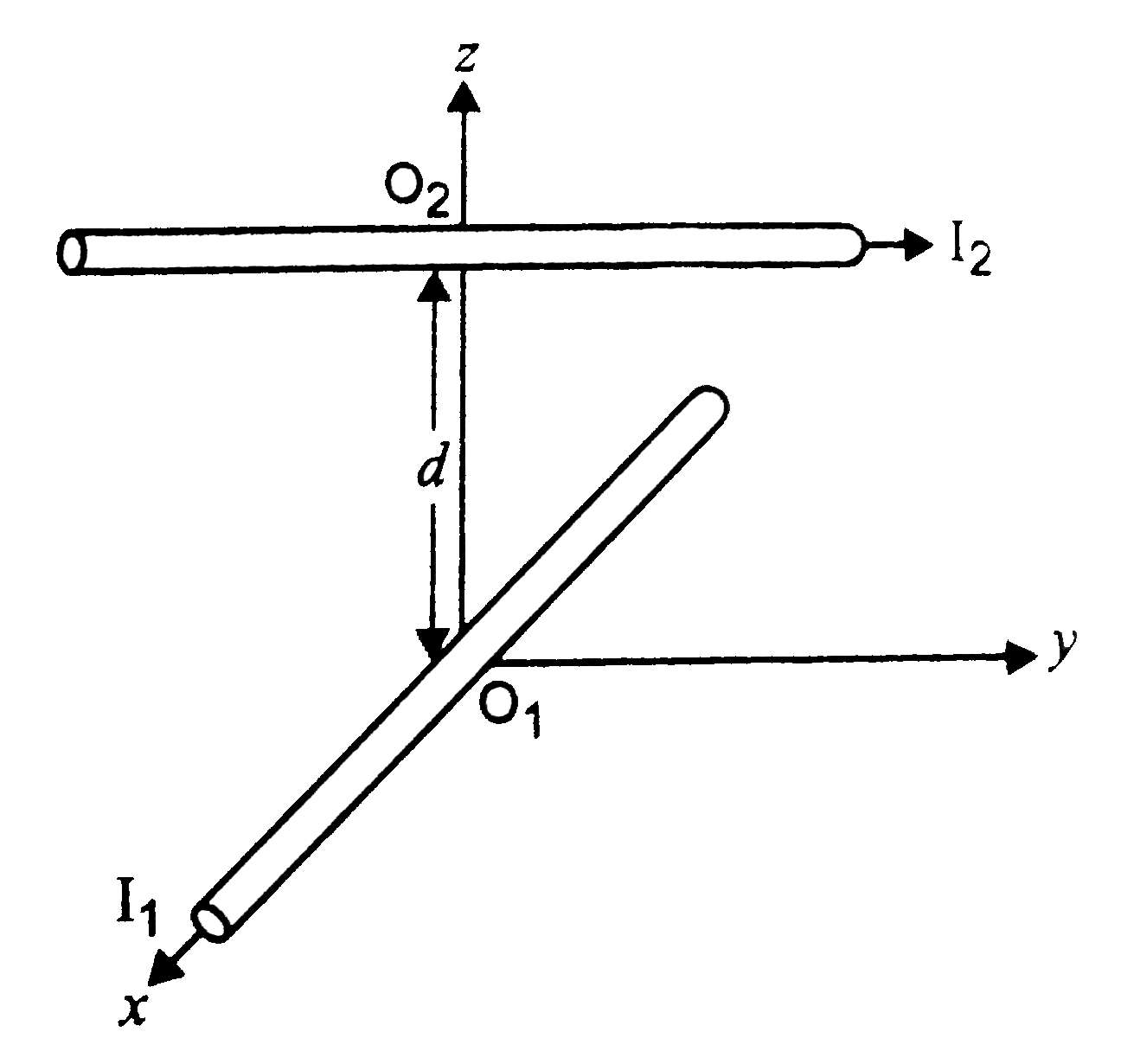
The correct Answer is:C
According to right hand thumb rule, the magnetic field due to current in the wire at point is along y-axis. We know, magnetic force,
Here ,
Hence, the force exerted at because of the wire along the x-axis is zero.
Topper's Solved these Questions
- MOVING CHARGES AND MAGNETISMBOOK - NARAYNACHAPTER - MOVING CHARGES AND MAGNETISMEXERCISE - EXERCISE - 3
29 Videos
- MAGNETISM AND MATTERBOOK - NARAYNACHAPTER - MAGNETISM AND MATTEREXERCISE - EXERCISE - 4 (SINGLE ANSWER TYPE QUESTION)
17 Videos
- NUCLEAR PHYSICSBOOK - NARAYNACHAPTER - NUCLEAR PHYSICSEXERCISE - LEVEL-II-(H.W)
9 Videos
Similar Questions
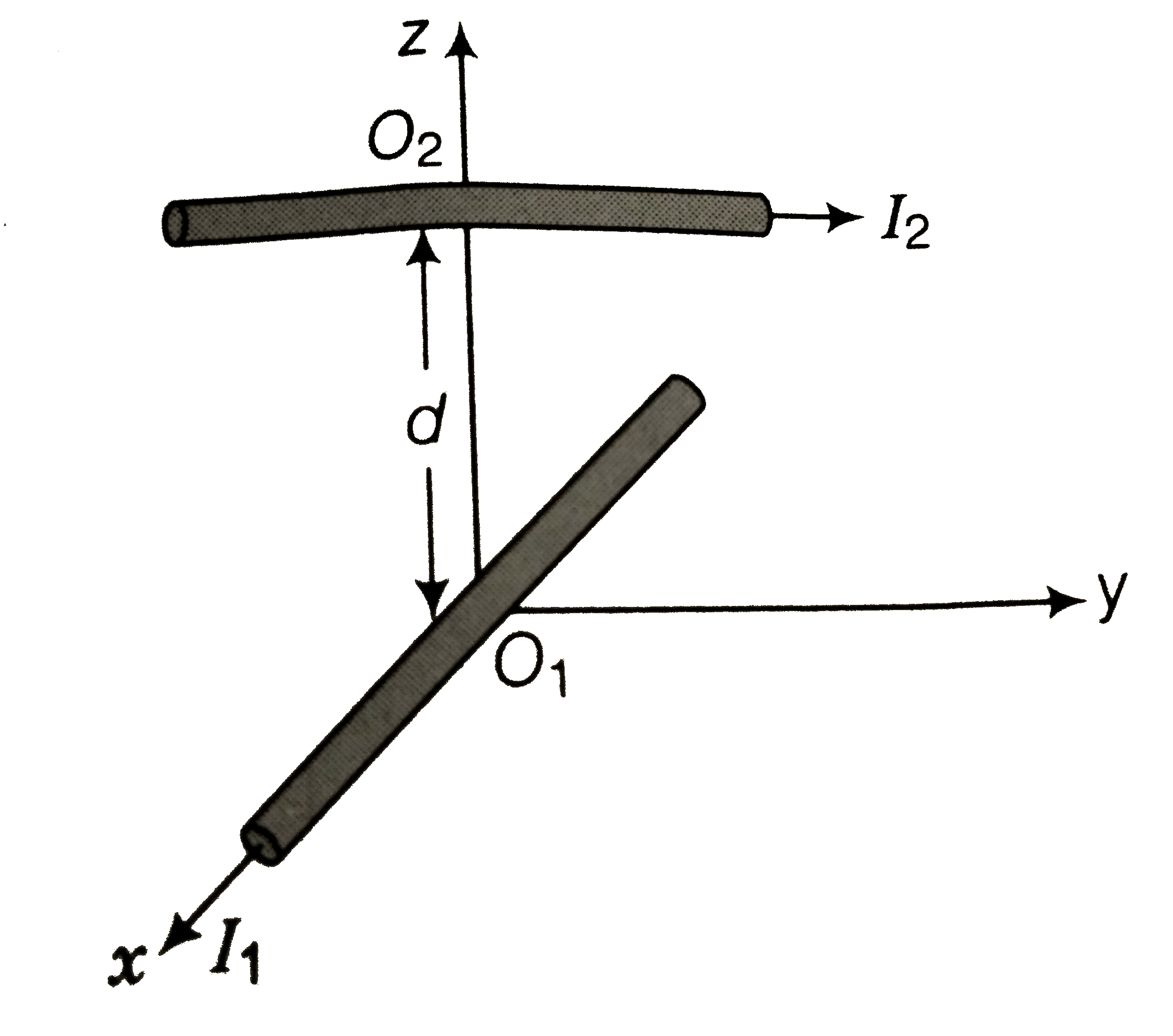
Two long wires carrying current I1andI2 are arranged as shown in figure the one carrying current I1 is along is the x-axis. The other carrying current I2 is along a line parallel to the y-axis given by x=0 and z=d. Find the force exerted at O2 because of the wire along the x-axis.
View SolutionFind the force on the conductor carrying current I1 as shown in figure.
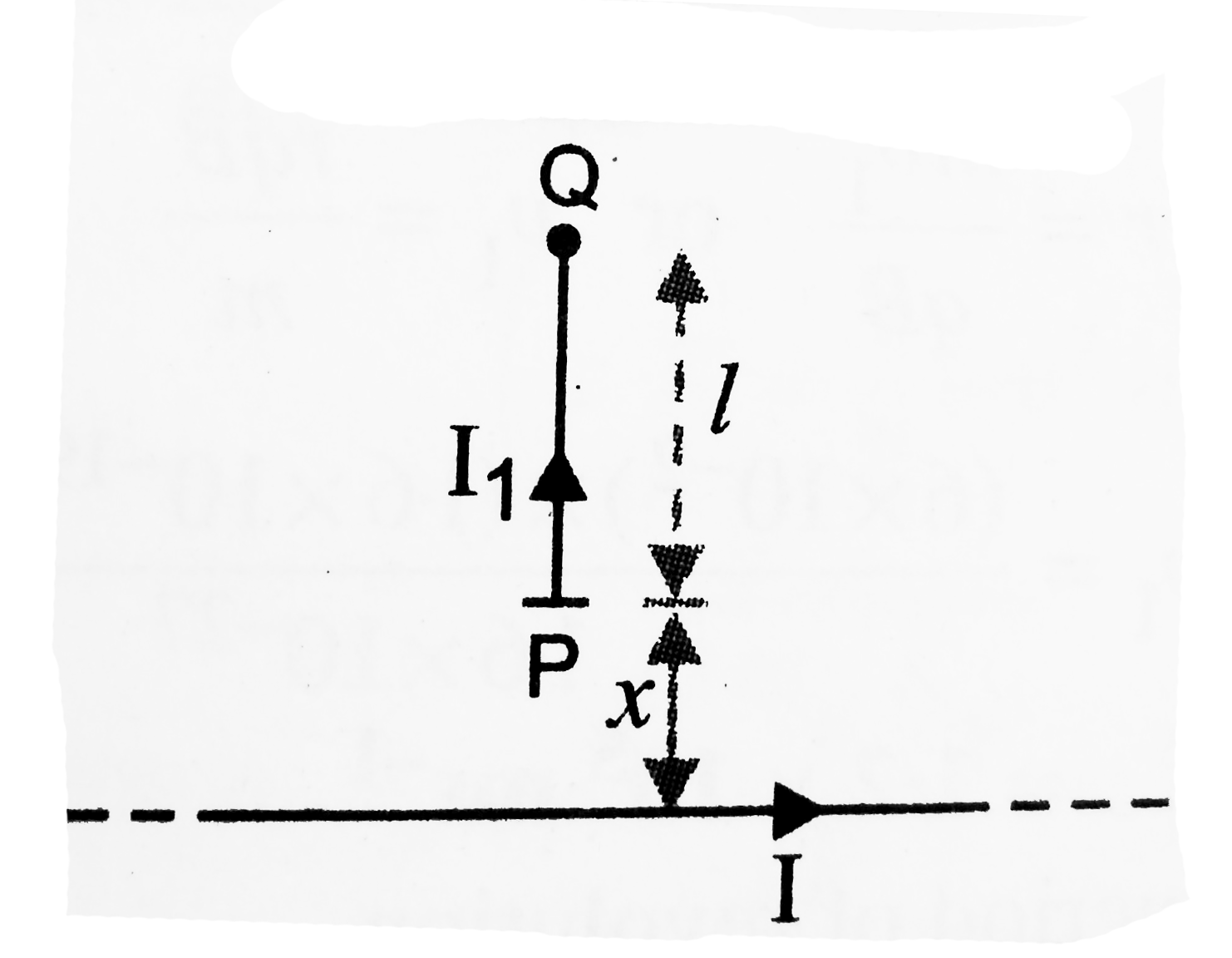
View Solution
Knowledge Check
Two long wire AB abd CD carry currents i1 and i2 in the direactions show in figure
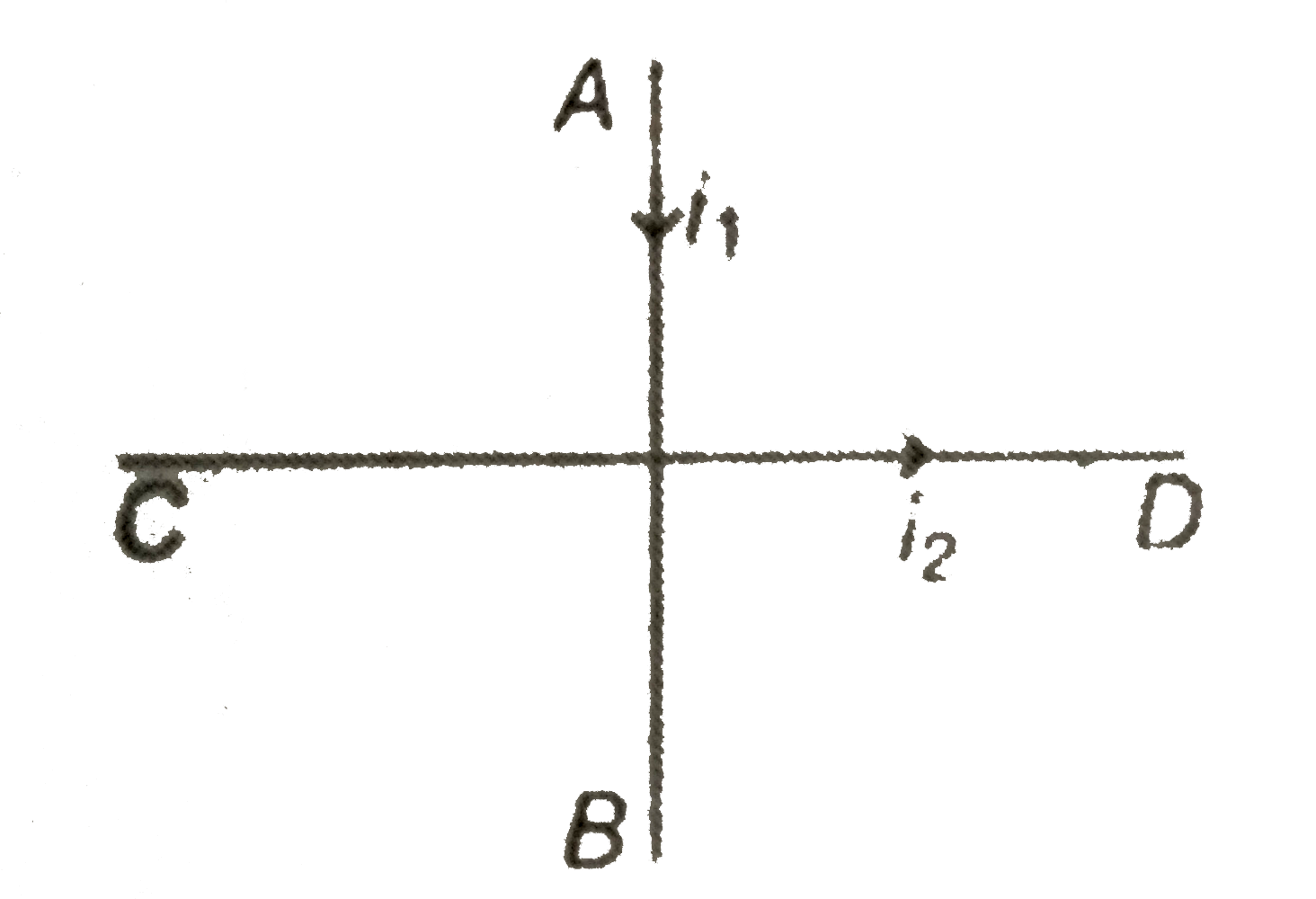 AForce on wire AB is towards leftBForce on wire AB is towards rightCTorque on wire AB is clockwiseDTorque on wire AB is anticlockwise
AForce on wire AB is towards leftBForce on wire AB is towards rightCTorque on wire AB is clockwiseDTorque on wire AB is anticlockwiseA straight wire carrying current is parallel to the y-axis as shown in Fig. The
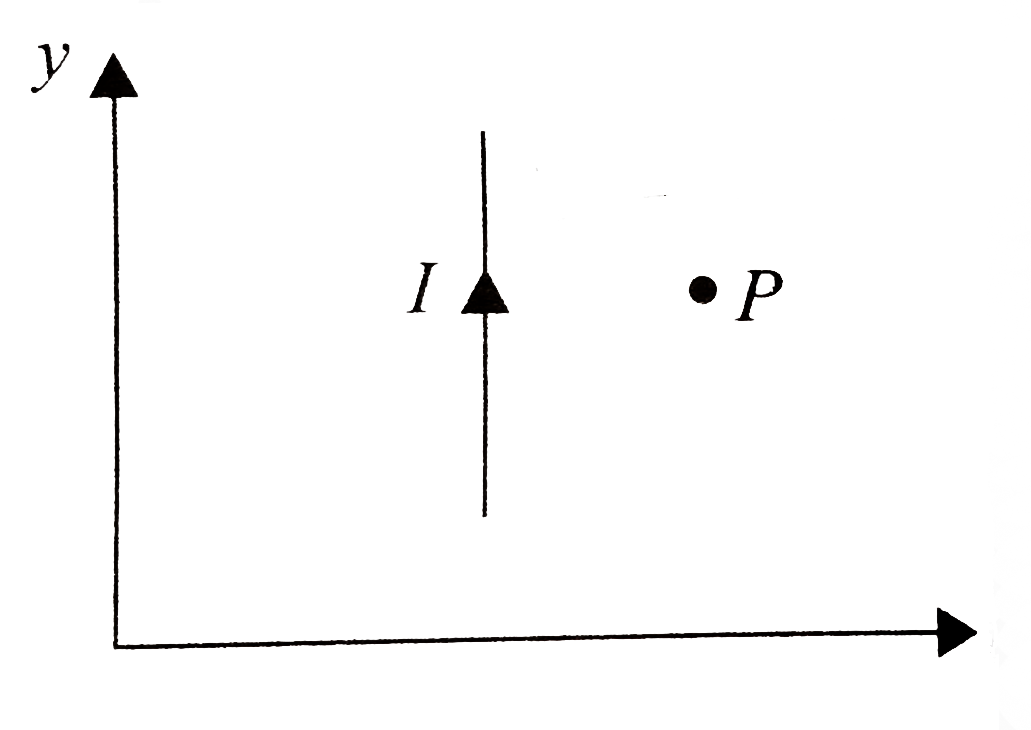 Amagnetic field at the point P is parallel to the x-axis.Bmagnetic field at P is along z-axisCmagnetic field are concentric circle with the wire passing through their common centreDmagnetic fields to the left and right of the wire and oppositely directed.
Amagnetic field at the point P is parallel to the x-axis.Bmagnetic field at P is along z-axisCmagnetic field are concentric circle with the wire passing through their common centreDmagnetic fields to the left and right of the wire and oppositely directed.Two long thin wires ABC and DEF are arranged as shown in the figure. They carry currents I. The magnitude of the magnetic field at O is
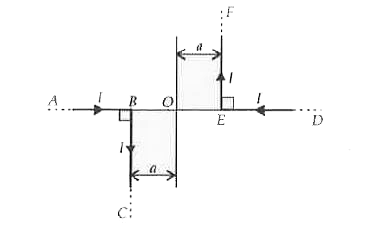 AzeroBμ0I4πaCμ0I2πaDμ0I√2πa
AzeroBμ0I4πaCμ0I2πaDμ0I√2πa
Two wires A and B are carrying currents I1 & I2 as shown in the figure. The separation between them is d. A third wire C carrying a current I is to kept parallel to them at a distance x from A such that the net forces acting on it is zero. The possible values of x are:
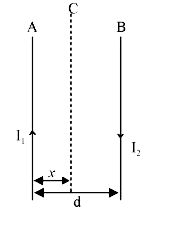
View SolutionThe figure shows a long straight wire carrying a current I1 along the axis of a circular ring carrying a current I_2. Identify the correct statement.
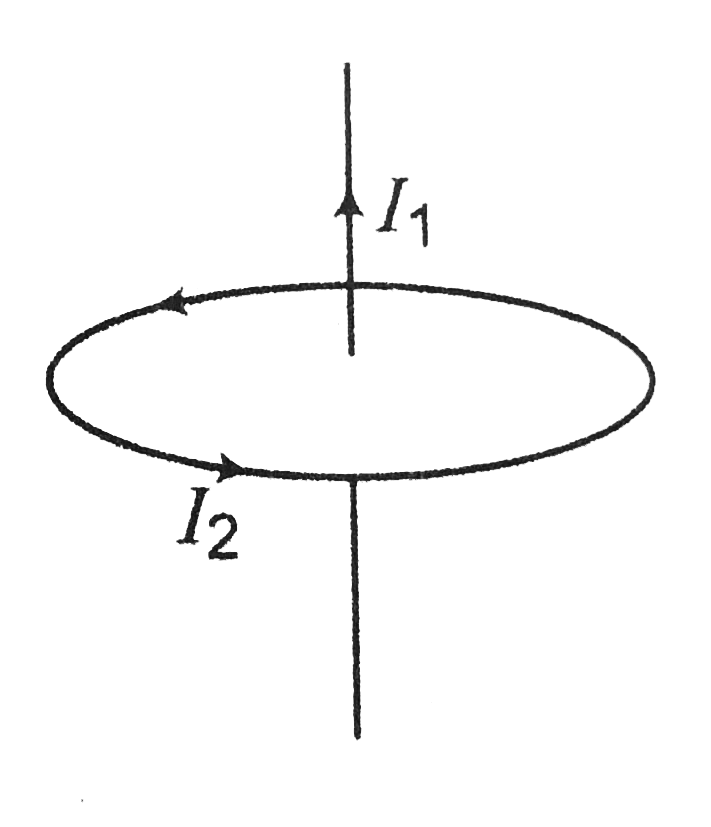
View Solutiontwo infinite wires, carrying currents i1andi2., are lying along x-and y-axes, as shown in the x-y plane. Then,
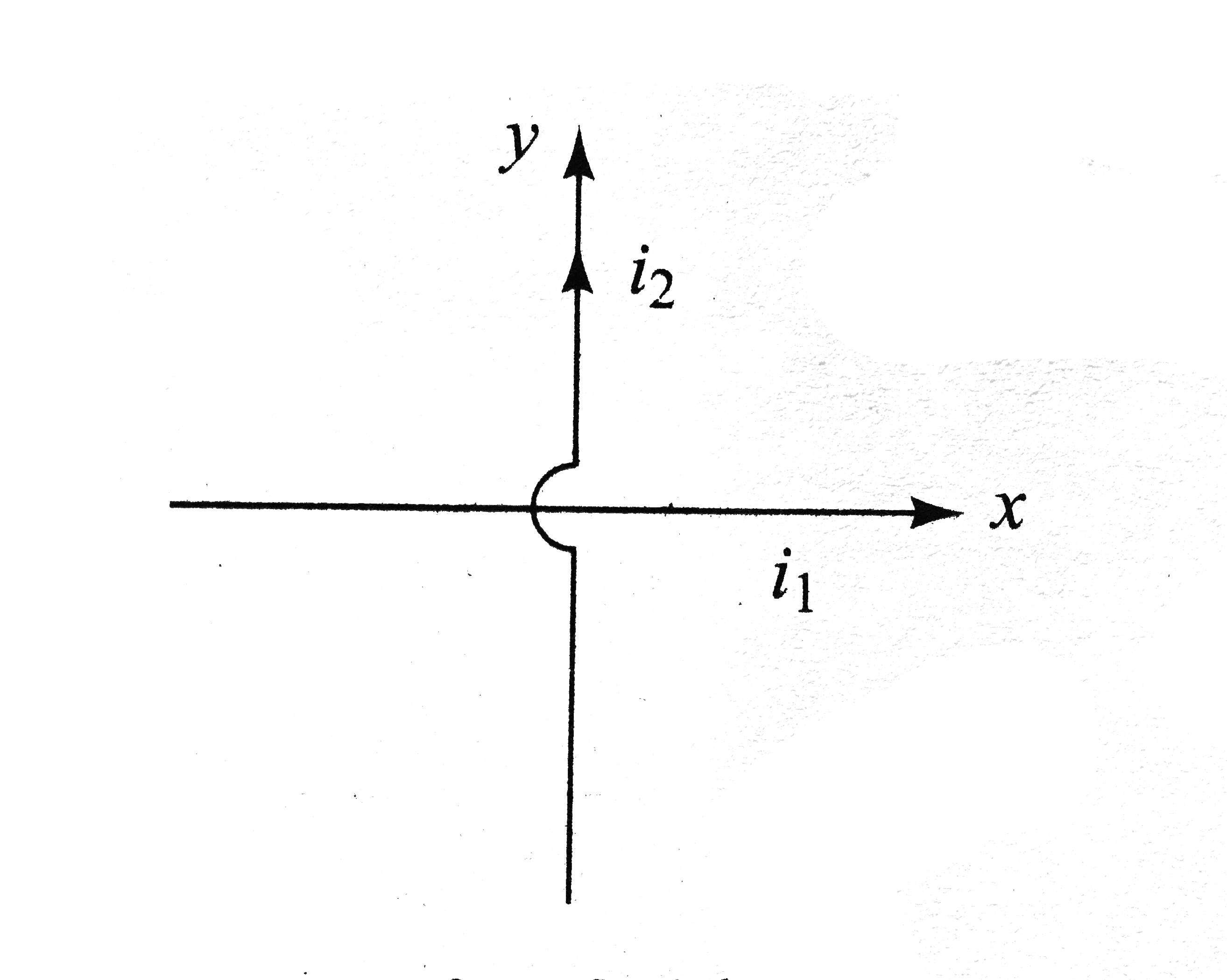
View SolutionTwo thin long wires carry currents I1andI2 along x- and y-axes, respectively, as shown in Fig. Consider the points only in x-y plane.
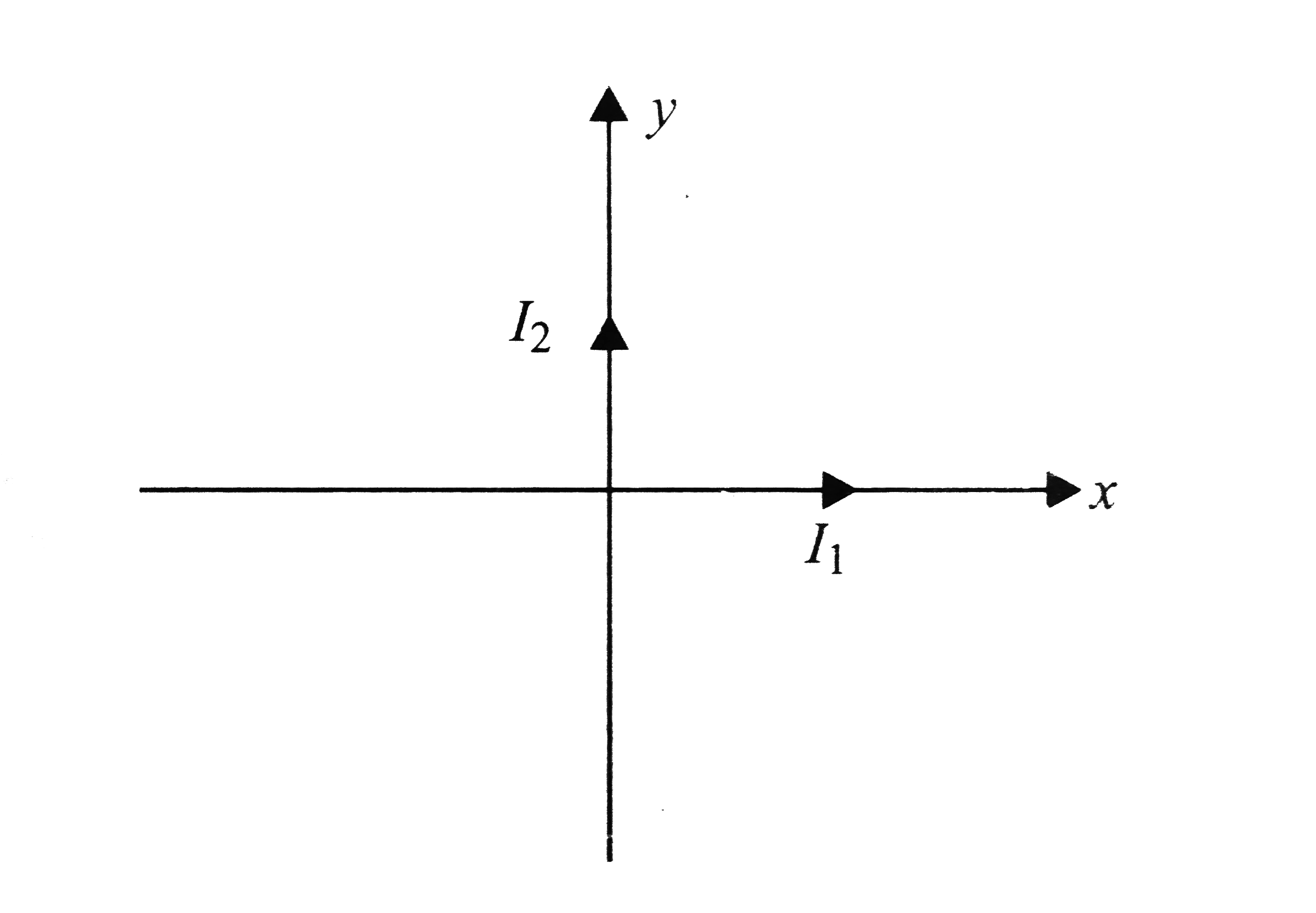
View SolutionThere is a circular loop carrying current and another straight wire carrying current is placed along its axis. The straight wire
View Solution
